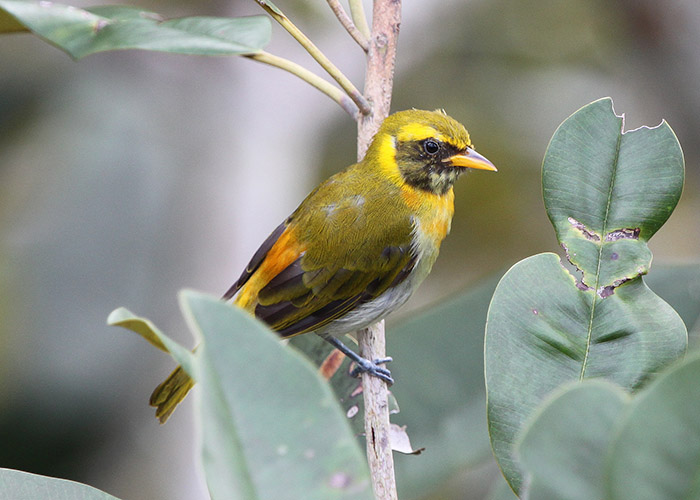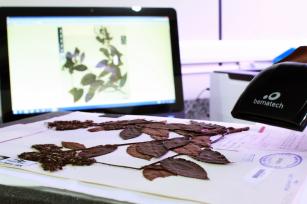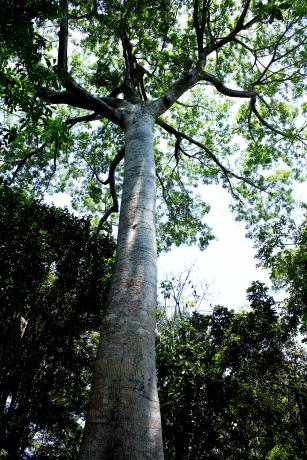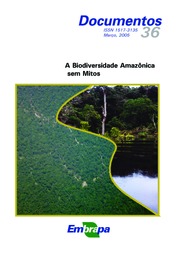Tropical ecosystems host more than three quarters of the planet's plant and animal species
Tropical ecosystems host more than three quarters of the planet's plant and animal species
The scientists discovered that tropical ecosystems hold nearly all shallow water coral reefs and more than 90% of the world's bird species. “Many of them are not found anywhere else”, warns Joice Ferreira, a researcher from Embrapa Eastern Amazon and co-author.
It is not news in science that tropical ecosystems shelter a vast diversity of plant and animal species and that they are fundamental for the well-being of millions of people all over the planet. The news is that the international group of researchers quantified the biodiversity present in tropical regions, and the results serve as a global warning about the need to prevent the loss of species in the tropics and to reverse previous damages.
Amazonian evaporation maintains La Plata river basin
Professor Jos Barlow, from Lancaster University (UK), main author of the article, says that the decline in the health of tropical ecosystems affects the well-being of millions of people whose basic needs depend on such systems. “For example, it is estimated that 70% of the rainfall in the La Plata River (or River Plate) basin, 3.2 million km², between Uruguay and Argentina, comes from evaporation in the Amazon, located North of Brazil”, the specialist asserts.
The figures from the study are impressive. The habitat of ten animal and plant groups, including birds, amphibians, freshwater fish, land mammals, ants and others, were analyzed, and the tropical ecosystems hosts at least 60% of the amount of species from eight of those groups. This means that in the tropics one finds 91% of the planet's bird species; 83% of the amphibians; 81% of freshwater fish; 79% of ant species; 77% of land mammals; 75% of plant species; and 66% of saltwater fish species.
“To give an idea of the importance of those regions, even the birds that are not native to the tropics take shelter in those ecosystems for long periods in light of the migratory movement of given species”, explains the study co-author Cecília Leal, from the Emilio Goeldi Museum.
Threats in the tropics
The group of experts has shown that hyperdiverse environments, as tropical ecosystems are called, have been undergoing a series of stresses both at a local level, such as deforestation and predatory forest gathering and extraction, and at a global level, such as climate change. The sum of all of these local and global problems has threatened and endagered several animal species.
In the Northern region of Brazil, for example, some threatened species are worthy of note, according to the specialists. There are hundreds of endangered bird species, including the golden parakeet (Guaruba guarouba) and the harpy eagle (Harpia harpyja). There are also the tapir (Tapirus terrestris), the Amazonian manatee (Trichechus inunguis), the giant otter (Ptenorua brasiliensis) and monkey species, like the white uakari (Cacajao calvus), all of which have their natural habitat in the Amazon and are at risk of extinction.
Strengthening science
The article makes an analytical review of over a hundred of studies in environmental and social areas and proposes key action to conserve hyperdiverse tropical environments. “Collective responsibility, diversified biodiversity conservation strategies and innovation are three basic principles to transform the health of such vital ecosystems”, states one of the authors of the article, the researcher Toby Gardner, from the Stockholm Environment Institute (SEI).
The researcher emphasizes that it is necessary to consider the existing vast scientific base in Brazil and the world to promote sustainable development. On the other hand, researchers and decision-makers need to be especially open to new evidence and experiences. “In the last few decades, there has been a boom of proposals, innovations and insights on the science, governance and management of tropical ecosystems”, he concludes.
For Joice Ferreira, from Embrapa, part of the solution lies in strengthening capacity at research institutions in the tropics. “Despite some notable exceptions, like Embrapa, the vast majority of data and research is concentrated in countries outside the tropics”, the researcher affirms. And that, for her, is a weakness. “There is an expectation that those who live in Brazil, and particularly in the Amazon, would have the command of knowledge about the region, but that is not what happens most of the time”, she adds. Moreover, the researcher Jos Barlow, from Lancaster University, asserts that foreign markets have a critical role in the future of the tropics and that pressures need to be balanced by international aid.
The authors also stress the international dimension of the study and the need to broaden and further networks and collaborations that combine specialists from different countries and disciplines, both from private and public institutions. “Governments, companies, investors and civil society organizations can find precious resources for conservation action in a collective construction”, assess the researchers, who have worked in a collaborative Amazon research network for almost ten years.
The Sustainable Amazon network (Rede Amazônia Sustentável) is a consortium of Brazilian and international research institutions, which has worked on the assessment of land use sustainability in the East of the Amazon region since 2010. The initiative gathers more than 30 partner institutions, including Embrapa Eastern Amazon and Embrapa Territorial Intelligence, and counts on nearly 100 researchers and students from different countries.
Translation: Mariana Medeiros
Ana Laura Lima (MTb 1268/PA)
Embrapa Eastern Amazon
Press inquiries
amazonia-oriental.imprensa@embrapa.br
Phone number: +55 91 3204-1200 / 99110-5115
Further information on the topic
Citizen Attention Service (SAC)
www.embrapa.br/contact-us/sac/





